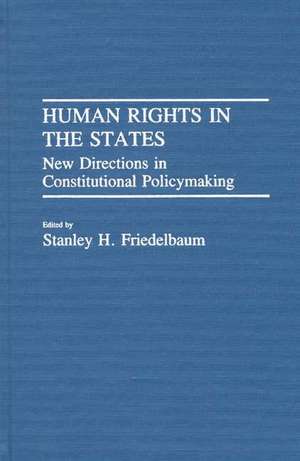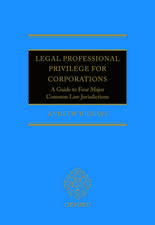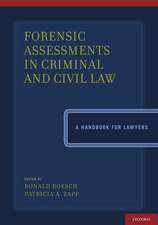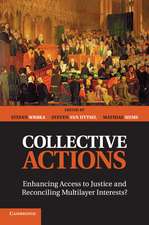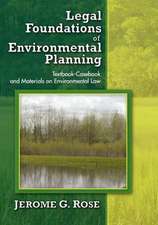Human Rights in the States: New Directions in Constitutional Policymaking: Contributions to the Study of Computer Science,, cartea 43
Editat de Stanley H. Friedelbaumen Limba Engleză Hardback – 31 iul 1988
A timely contribution to the analysis of the American Constitution. . . . Edited by Stanley Friedelbaum, it consists of essays written predominantly by political scientists with expertise in constitutional law. The underlying theme is twofold: an exploration of the constitutional norm of federalism, and of the nature and meaning of the Bill of Rights. . . . Highly recommended for advanced undergraduate and graduate students. "Choice"
The editor introduces the volume with an overview of the historical relationship between federal and state courts and a discussion of the interplay of national and state legal standards. The contributing authors examine the ways in which various state courts have expanded their effective jurisdiction with regard to specific constitutional issues, including state counterpart First Amendment guarantees, women's rights, privacy, and economic due process. Other topics covered are the reactions of state courts to pro-prosecution Burger Court decisions, the efforts of state courts to shield their findings from federal review, and the limits of state authority over individuals. The final chapter assesses the possible long-term significance of state constitutional initiatives for human rights protection and the American judicial system as a whole. The first authoritative, full-length analysis of the subject, this study will be welcomed by legal scholars and students as well as human specialists.
Preț: 437.47 lei
Preț vechi: 604.02 lei
-28% Nou
83.72€ • 87.29$ • 69.58£
Carte tipărită la comandă
Livrare economică 20 martie-03 aprilie
Specificații
ISBN-10: 0313254516
Pagini: 221
Dimensiuni: 152 x 229 x 16 mm
Greutate: 0.5 kg
Editura: Greenwood Press
Seria Contributions to the Study of Computer Science,
Descriere
The editor introduces the volume with an overview of the historical relationship between federal and state courts and a discussion of the interplay of national and state legal standards. The contributing authors examine the ways in which various state courts have expanded their effective jurisdiction with regard to specific constitutional issues, including state counterpart First Amendment guarantees, women's rights, privacy, and economic due process. Other topics covered are the reactions of state courts to pro-prosecution Burger Court decisions, the efforts of state courts to shield their findings from federal review, and the limits of state authority over individuals. The final chapter assesses the possible long-term significance of state constitutional initiatives for human rights protection and the American judicial system as a whole. The first authoritative, full-length analysis of the subject, this study will be welcomed by legal scholars and students as well as human specialists.
